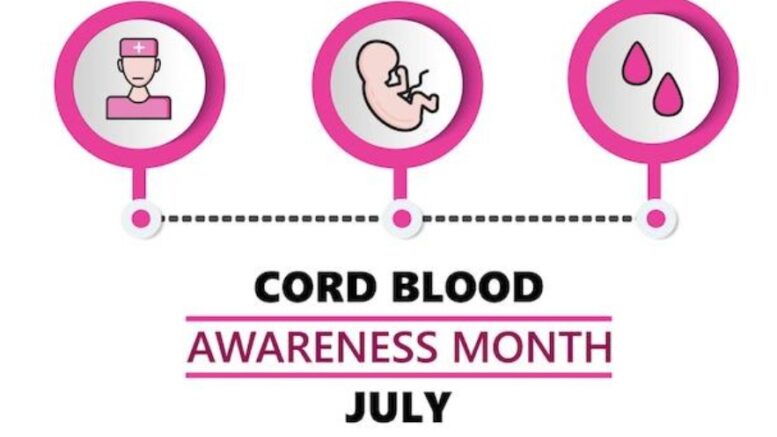When you get pregnant, there are so many things to think about. Do you want to find out the gender before birth? Do you want to know if the baby has any genetic conditions? Do you want to know how far along you are with an ultrasound? How will your child attend school once they’re old enough? These are all important things parents need to think about when getting ready for a new addition. However, there is one thing that many parents don’t initially think about: Where will the baby’s cord blood go once it’s removed from their body during delivery? Cord blood is often thought of as a secondary source of stem cells in case of emergency, but it can also be used for private storage and future use. There are pros and cons for both options, but here is everything you need to know about storing your baby’s cord blood.
What is Cord Blood?
Cord blood is the blood that remains in the placenta and umbilical cord after birth. It contains stem cells that can be used as a source of treatment for a range of diseases, including leukemia, sickle cell disease, and other blood disorders. Cord blood is different from the blood that is in your child’s circulatory system, because it is collected from the blood vessels in the placenta and not from their own blood. However, it is a source of stem cells that can be used for blood transfusions or for future medical treatments if your child or a close family member needs it. The blood in the umbilical cord and placenta is rich with stem cells. It is estimated that there are between 30 and 100 times more stem cells in the cord blood than in the actual blood in the child’s circulatory system.
Private Storage
Private storage is when you pay a company to store your baby’s cord blood for you. They will freeze the blood, and you own the rights to it. This option is best suited for parents who are highly concerned about their child’s health in the future. Parents who have a family history of genetic diseases, such as leukemia, sickle cell disease, or other blood disorders are good candidates for private storage. Private storage is a significant investment, but it may be worth it if your child is at risk for a serious genetic disorder later in life. You may be able to recoup some of the costs of the storage if the blood is ever needed for your child’s treatment. There are several blood banks that offer private storage for expectant parents. The blood is frozen, and the blood bank will store it for you. You or your child can request the blood for treatment at a later time if he or she ever becomes sick and needs a stem cell transfusion. Before signing up for private storage, you should research several blood banks to find the best one for your family’s needs.

Public Storage
Public storage is when you donate your baby’s cord blood to a government-run bank. This option is best suited for parents who aren’t concerned about their child’s future health, or whose child’s genetics don’t put them at risk for any serious diseases. High-end cord blood banks that operate under the public model often offer free cord blood storage. They store the blood in hopes of being able to donate it to someone in the future who needs a stem cell transfusion.
Why Cord Blood?
Cord blood is rich in stem cells that can be used to treat many different diseases. These stem cells can be used for blood transfusions or for future medical treatments if your child or a close family member needs it. Cord blood has many advantages over other types of stem cell treatments. For one, it’s easier and less expensive to store than other types of stem cells. It also has an excellent track record for treating certain diseases.
Cord Blood FAQ’s
– What is the cord blood used for? – Cord blood is rich in stem cells that can be used to treat many different diseases. These stem cells can be used for blood transfusions or for future medical treatments if your child or a close family member needs it. – What diseases can be treated with cord blood? – Cord blood has many advantages over other types of stem cell treatments. For one, it’s easier and less expensive to store than other types of stem cells. It also has an excellent track record for treating certain diseases. – Is cord blood collected at the birth of the baby? – Yes. The blood in the umbilical cord and placenta is rich with stem cells. It is estimated that there are between 30 and 100 times more stem cells in the cord blood than in the actual blood in the child’s circulatory system. – What are the benefits of cord blood banking? – Cord blood is rich in stem cells that can be used to treat many different diseases. These stem cells can be used for blood transfusions or for future medical treatments if your child or a close family member needs it. – Is there a cost associated with cord blood banking? – Yes. There is a fee associated with cord blood banking, but it varies depending on the bank. – When should you bank your baby’s cord blood? – During pregnancy, you can begin to explore the options for storing your baby’s cord blood. You can choose to store it with a private company or donate it to a public bank. – What is the difference between public and private cord blood banking? – Public cord blood banking involves donating your baby’s blood to a government-run bank. Private cord blood banking is when you pay a company to store your baby’s blood for you.
How to Select a Bank?
There are several blood banks that offer private storage for expectant parents. The blood is frozen, and the blood bank will store it for you. You or your child can request the blood for treatment at a later time if they ever become sick and need a stem cell transfusion. Before signing up for private storage, you should research several blood banks to find the best one for your family’s needs. One thing to look for in a blood bank is accreditation from the American Association of Blood Banks (AABB). This ensures that the bank follows good practices for collecting, processing, storing, and transfusing blood and other types of medical specimens. You should also check to see if the blood bank has a good track record. You can find out this information by reading online reviews and talking to other people who have used the blood bank before.
Conclusion
Cord blood is rich in stem cells that can be used to treat many different diseases. These stem cells can be used for blood transfusions or for future medical treatments if your child or a close family member needs it. Cord blood has many advantages over other types of stem cell treatments. For one, it’s easier and less expensive to store than other types of stem cells. It also has an excellent track record for treating certain diseases. If you are expecting a child, you may want to consider banking your baby’s cord blood. It has many uses, and it can be very beneficial for your child in the future.
